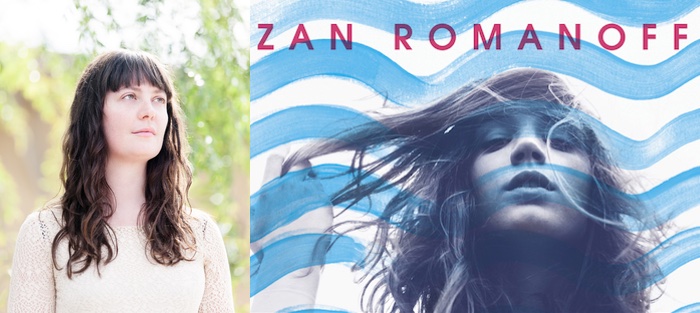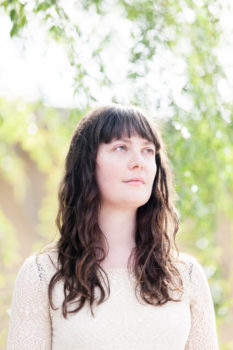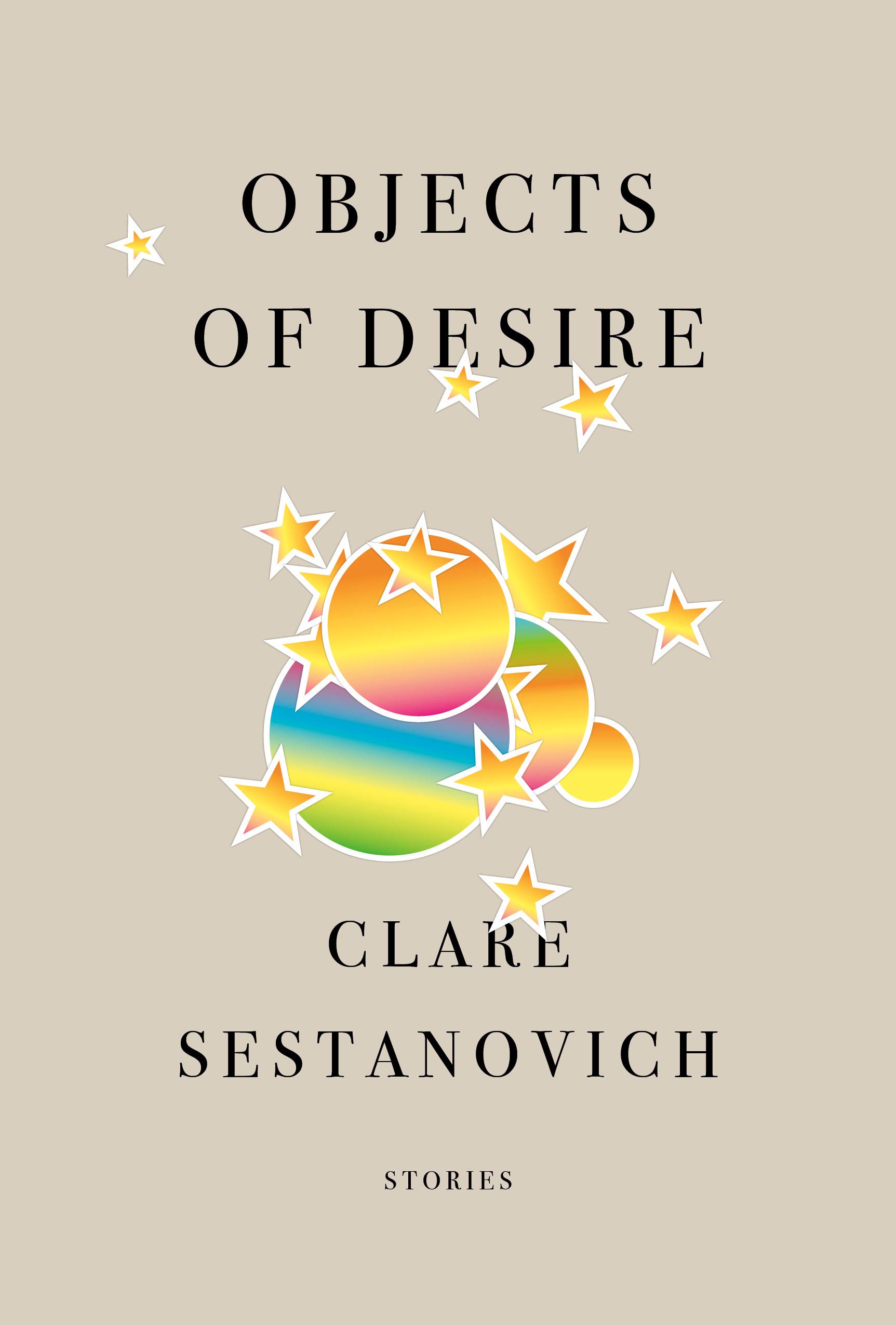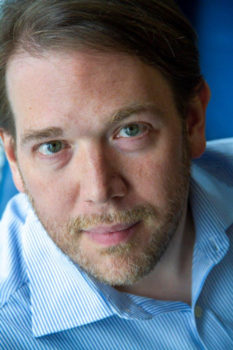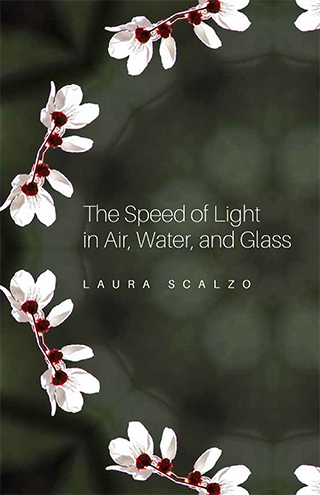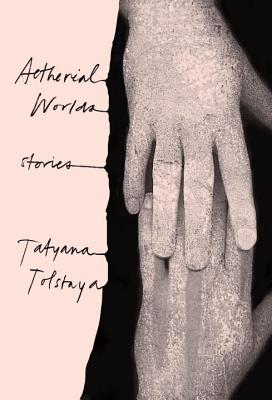Zan Romanoff is a young adult author, pop culture writer, and essayist, whose debut novel, A Song to Take the World Apart (Knopf Books for Young Readers) was published this September. The novel’s protagonist, Lorelei, never questions her family’s rule against singing—until she falls for Chris, an older student and musician at her high school. Suddenly Lorelei is curious about the reason for her parents’ silence, and the more she asks questions, the more she learns about the long-held family secret that may reveal the power she holds in herself.
Zan writes across the Internet with candor and heart about her friends and relationships, as well as sharing her nuanced perspectives on everyone from Taylor Swift to Joan Didion. Her second book, Grace and the Fever, is due out in the spring of 2017.
The first time Zan and I were scheduled to talk was the day after the Chicago Cubs won the World Series. I asked her if she would mind rescheduling so I could attend the once-in-108-years parade. Of course, she said, and we picked a time in the following week, when “things would have returned to normal.” But our new time arrived three days after the election, and normalcy seemed out of the question. I didn’t know what shape our conversation would take.
But instead of bringing added stress, the topics of our conversation took on new resonance in the face of the uncertain future. Zan spoke about asserting one’s worth as a writer and processing challenging experiences through art. We discussed how to talk to teenagers about what the next years will bring. Although at a national level, this might be anyone’s guess, our talk reminded me of the importance of turning inward to reflect on our own emotions and beliefs before inspiring change. This interview was conducted over the phone.
Interview:
Emma Gordon: You studied literature at Yale. How did that translate to becoming a writer yourself? Did you feel that what you learned in college prepared you for writing your first book?
Zan Romanoff: I decided I wanted to go to Yale with no thought one way or the other about the writing program. I knew I wanted to be a literature major because I also love to read, so getting a degree in reading novels seemed extremely ideal to me. I applied to some creative writing classes and I didn’t get into any of them. But I think in some ways it was really useful to spend just four years taking apart the structure of a novel, and how it works from the inside out. Even though I wasn’t in any craft-specific classes, I learned about the theory of literature, which taught me a lot about how books are constructed. That education was the basis for a lot of the writing that I do. I’m lucky to have a very solid understanding of how various techniques work or don’t.
When I was at Yale, I got very involved in a sustainable food project. I worked for that organization as an undergraduate, and then for a couple of years after I graduated. I didn’t think about writing professionally until I had left the food project and moved back to Los Angeles. I wanted to get a job in sustainable agriculture, but I could not get one for the life of me. It was really frustrating. I was lucky in that I was living with my parents, so I didn’t have to worry about rent. While I continued to look for jobs, I thought to myself, “It’s looking like this isn’t going to happen, and I’ve always said, if I had a lot of time, I would want to write a book.”
Then I realized, “Shit, I guess I’ve got to try to write a book.”
Part of me thinks I got really, really lucky. I had the time, and the idea happened to be the right one. Before that, I don’t think I was ready to work on a project of that magnitude. But then again, I spent my whole life writing and working on writing and thinking about books and thinking about writing, so maybe it was something more than luck.
How did you move from having that revelation to actually writing the book and getting it sold?
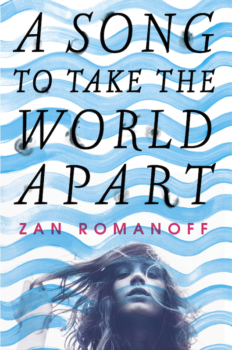 I started writing that book when I moved back to LA and was living with my parents. Part of the reason why I moved back was because my grandma was dying of old age. She died right after I moved home and left me a bit of money. My parents asked me if I wanted to use the money for creative writing classes, because she would have loved that. So I said, “Of course.”
I started writing that book when I moved back to LA and was living with my parents. Part of the reason why I moved back was because my grandma was dying of old age. She died right after I moved home and left me a bit of money. My parents asked me if I wanted to use the money for creative writing classes, because she would have loved that. So I said, “Of course.”
I started writing the book as an offshoot of a creative writing class assignment in April of 2013. I write fast—and I was unemployed—so I had a full draft of it by the end of the summer. It was about three to four months, which is relatively fast for a first draft, though not unheard of. You should know, that wasn’t a great draft.
Then I had to edit it. I did the bad thing where I edited it myself, and then I sent it to one friend to read who said, “This is great! You should make these minor changes, then you should send it to agents.” And I was like, “Great, I’m a genius. I wrote my book in one draft.” So in December of 2013 and January of 2014, I started sending it to agents. Pretty much all of them got back to me to say, “You’re very talented, but this is not ready.” They were really lovely rejections.
I spent the bulk of 2014 doing intensive revisions with my amazing writing teacher. This time I had a bunch of family and friends—basically anyone who was willing to read it—tell me what they thought. That resulted in a lot of un-useful feedback, but some of it was actually very good.
I ended up getting an agent in July of 2014, after about seven months of querying. We submitted it to editors at the end of 2014, and every single one of them rejected it except for my editor who got back to us to say, “I love this, but I don’t think it’s quite there yet. I want to see some revisions.” So I spent December of 2014 frantically doing a revision for her. By this point, I had a day job, so I had to use the time off for the holidays to work really hard on this.
We sold it to her in February or March of 2015, and then it came out in September of 2016. That was so bizarre to me. While A Song to Take the World Apart was coming out, I was already doing edits on my second book and trying to write a third book. People would ask me questions about Song and I would want to say, “I don’t know, I wrote that years ago!”
I would like to go back to when you were talking about how you had a million people read your manuscript and they were all giving you different suggestions. I think something that can be challenging about revision is choosing whom to trust, because in some ways, you have to know your own book and what you want it to be outside of what anyone else might try to convince you. How did you make those decisions, and were there any times when an editor or friend wanted you to make a significant change that you disagreed with?
I spent no time in creative writing workshops in college or high school, so by the time I got into them after college, I was a little older, and had spent enough time writing by myself to learn to trust my instincts. For so many years, my instinct had been the only advice available to me. The first time anyone gives me a suggestion, I automatically in my head go, “No, you’re wrong, I wrote the perfect story.” But then I sit with it, and within a day or two, I start thinking about how I would incorporate the feedback. The way I decide whether or not I will do it is by asking myself if there is a clear way I can make it work. Sometimes I just don’t think I can bring that idea into my story, which makes me think that, in the long run, it’s probably not feedback for the story I’m trying to tell.
Song is written in third-person and most young adult fiction is written in first, because it’s more immediate. So I got a lot of feedback from people who said, “I would totally buy it if it was written in first-person.” I heard this so much that I decided to try to switch the point of view, even though I thought it would be wrong. And when I tried, it was totally fine, to the point where I could have done it if I had to, but I knew it wasn’t the same book. I didn’t like it as much. So I decided to keep it in third. I am grateful to have a fantastic agent, who probably could have sold the book for more money if I had put it in first, which would have made her more money, but she said to me, “No, if you don’t think it’s a good idea, don’t do it.”
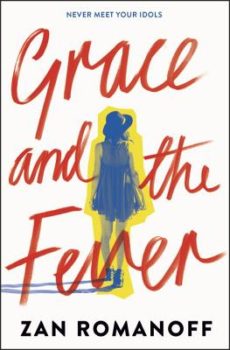 Was that a conscious choice, to write in third-person, or was it something that just happened with the book, and that you only considered intentional when you were asked to change it?
Was that a conscious choice, to write in third-person, or was it something that just happened with the book, and that you only considered intentional when you were asked to change it?
There were many weird starts to that book, but I think all of them were in close third. I think in part it’s because I also write a lot of essays, so I have a first-person voice, but it’s my own first-person voice. That’s how my brain works. For me, fiction is third, and essays are first.
In terms of the nonfiction writing you do, you also write a TinyLetter newsletter, which has become a popular format recently. How do you think a TinyLetter is distinct from a blog or an essay?
That is something I’ve been thinking a lot about. I have a Twitter, and I have a Tumblr, and I have a TinyLetter, and that can be hard to maintain. That’s a lot of writing for free on the Internet. But, that said, I think they are really distinct. It feels intentional when people subscribe to the TinyLetter, which makes me comfortable writing things that are a little more personal. First of all, the number of Tumblr followers I have vs. the number of those followers who are human is very different. Whereas everyone who subscribes to that TinyLetter is a human being. When you follow a Tumblr, you scroll past a post, you don’t check it for a couple of days, whatever it is. Also, there’s always an extent to which, when I write things on Tumblr, I’m looking for likes or re-blogs. There’s none of that on the TinyLetter. The only reaction I can hope for there is conversation. That gives the newsletter a sense of me saying things as if I’m talking to someone, instead of if I had written a public-facing essay, which is more how I view Tumblr and my professionally published work.
I wanted to ask you about what you said about writing for free. With this proliferation of media outlets, and also this democratization—everyone can do it. Do you think that makes it harder to be a creative person, because there’s so much pressure to just give everything away without receiving payment in return?
Yeah, absolutely. I think there’s a sense that anyone can have a Medium blog and write their feelings, and maybe go viral. And it’s like, maybe. But it’s also very real work.
In the spring of this year, I quit my job at a Jewish Community Center in Los Angeles to write full time. A couple months after I left, they sent me an email asking me to do free copywriting for them, because they hadn’t found anyone who could write as well as I could. And I had to say to them, “I love you guys, and I get that you have no money, but you’re right that I’m much better at it than most people, and I’m right to say that you’ve got to pay me for that skill.” People often don’t understand the amount of work that’s involved in writing. We read a ton of bad writing on the Internet, and I think people are content with low quality until they are shown something better. Making them pay you to make it better for them is the real hurdle.
I’m very lucky that I exclusively write for outlets that pay, and if I write something for free, it’s because I’ve made a conscious decision that I want to. But I definitely have had many people advise me to write for free, and I’m just like, “Thank you for your opinion, but no.”
Was there a specific point when you decided you were far enough along that you wouldn’t write for free anymore?
Yeah, when I quit my job. My feeling is it’s my work, and I don’t want to leave deciding its value up to other people, because they won’t understand it, and that will just demoralize it. So when I write a piece or come up with a pitch, I decide what it’s worth to me.
After years of having another job and writing for myself for free on Tumblr, I’m finally in a place where my name is out there. People have started to recognize my work. It sucks because people who can afford to have jobs that give them time to write or get money in other ways get ahead of people who don’t have that time. It’s important to consistently recognize the value of your work, and as soon as you are able to say to people, “You need to pay me for my time,” you have to do it. That’s how it works in every other industry; it needs to work that way in this one.
I want to return to when you mentioned the intimacy of your TinyLetter and your Tumblr. You mine most of the content for both of these from your own life experiences. How do you choose what to reveal and what to keep private?
It’s an ongoing process. This summer, I dated another writer, and after we broke up, he published an essay that sounded like it might have been about me. It’s been really hard for me not to write something retaliatory. But I know it’s not worth it. If I put something out there, people will hopefully respond to it. But am I ready to have a conversation about whatever it is that I wrote about? In the case of that relationship, I know that I don’t want to. So writing about that online would feel good for about fifteen minutes, and then I would have to explain myself, and I know I don’t want to do that. I could talk about myself forever. In lots of ways that’s what makes me a good writer and a good essayist, but it also means that my guesses around other people’s desires for privacy are not necessarily agreeable, so I try not to get into that whenever possible.
I hadn’t planned to write that essay for Buzzfeed [“What My Best Friend and I Didn’t Learn about Loss,” which follows Zan and her best friend through her friend’s stillbirth], for a really long time. I surprised myself that I did. I sent it to Allison and she read it before anyone else. She gave me her blessing, and said she wanted more people to talk about stillbirths. So I really thought I would be OK with putting it out there. But when it came out, I didn’t have a lot of warning, and I had a really hard time. People were reaching out to me to say, “I’m so sorry,” and I wanted to respond, “Thank you, that’s really nice, but you also don’t understand what you’re talking about.” The reason I didn’t call any of these people to discuss this with them when it happened is because it’s not a part of their lives; it’s a part of mine.
Of the things I’ve written this year, that piece is maybe the thing I’m proudest of, and I don’t regret it at all, but it’s also the only piece I’ve ever published where I felt like I thought I had a better handle on my feelings than I actually did. It took me aback.
When you are writing about yourself, do you try to write about emotional experiences at the height of feeling or do you wait until you have some kind of critical distance from the situation?
Critical distance, for sure. I can’t write about things when I’m feeling them. The act of writing to me has always been about having time to digest an experience. It also often means that I can divest myself from the immediacy of the experience because now it’s been codified into an essay. At that point, some portion of the experience becomes the essay instead of the experience for me, which can be a way of getting rid of painful or unpleasant or uncomfortable things. I think the trouble with the Buzzfeed article was that it was not something I was ready to or wanted to get rid of, because the relationship in it is one that matters hugely to me and that’s in progress in my life every day. So the suggestion that that essay had put a cap on or subsumed any part of that experience was really difficult for me to deal with.
Female friendship is, of course, the center of that essay, but it’s also a big part of your novel. What do you think about the way that female friendships, especially between young girls, are portrayed or not portrayed in books and pop culture?
When I was writing my book, I did not sit down with the conscious desire to be like, “I’m going to write about strong female friendship!” But when I think about high school, and the people I loved, it was my female friends more than anyone. If I try, I can name the boys that I had crushes on, and the experiences of having those crushes was a very important part of high school, but the boys themselves were frankly interchangeable. Whereas my two closest girlfriends from high school are still some of the most important people in my life. The day after Trump won, they were the ones I sat with and cried with for hours. That’s a really important thing in my work to me, to continue to find a way to portray how incredibly nourishing and sustaining those relationships are and can be. That’s my experience, so that’s what I write. I respect that other people write more complicated and more difficult versions of that.
You brought up the election, and I don’t think I can do this interview without asking about it. But specifically as someone who writes for a largely female teen audience, how do you think we should talk to girls about this, and how do we empower them even if the people at the top don’t?
I was 12 when Bush was elected the first time, so I spent all of high school with him as president. But he had not won the popular vote. That instilled a lot of really problematic political apathy in my friends and me, because we thought that the system was broken, which meant it was stupid, and that we shouldn’t care. When Bush left and Obama came in, we were swept up in this idea of change and inspiration. No one sat us down to say, “It’s nice that at the end of your apathy, you were able to have this excitement, but you have to remember that there’s a lot of stuff that you could be doing at any time that would be really effective.” I think that maybe the thing to say to teenagers is, “Yeah, the government does not have your best interests in heart, but there’s a lot you can do to change that. Also, having strong communities made up of people who love you and who will be there for you when the state is not is remarkably important.”
I’ve obviously been in eighteen different kinds of crisis since the election, but one of them is asking myself, “What am I doing with my life? Yeah, I’m writing for teens and that’s really important, but shouldn’t I, like, become a lawyer or something?”
I feel that too, but part of me also thinks art is going to become even more important now.
You’re right, I do think it is. It’s actually not writing the novels that bothers me at all. As it happens, the third one that I’m working on right now is explicitly about a queer, brown young woman and the way that white men try to own her body. So that feels very urgent and correct to me. It’s the freelance writing that I do and the culture pieces I’ve been churning out that can start to feel deeply stupid. I can make an argument for why those conversations are important—culture’s not going away, and having a nuanced understanding of it is crucial—but it’s hard right now. It’s a deeply sad and scary time.
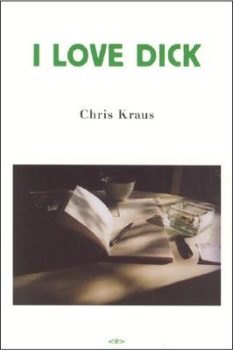 What books are you turning to to help you cope?
What books are you turning to to help you cope?
I’ve been reading constantly over the last few years, as I’ve been moving toward writing professionally. It’s been great because I’m getting a very wide grasp of things, but it’s also hard for me to give something enough attention to really fall in love with it. When I was younger, I would read the same book over and over again. It’s one of the reasons that I wanted to write children’s literature, because that’s the stuff that I really embraced and spent time with. In recent memory, though, the books that stick out to me are Elena Ferrante’s books, because she’s a genius, and Chris Kraus’s I Love Dick, because it is the smartest thing a woman has ever written about being a straight woman. Although it’s not exactly a comforting book.
Your favorite things can be comforting too, sometimes.
That’s true, but in times of sadness and stress, I find poetry and music to be a little more useful to me than the full scale of a novel. A novel needs critical attention in a way that’s demanding and amazing, but in these moments I need the lightness and the comfort of a poem or a song.
I don’t read poetry really at all on my own but I’m lucky that I have friends who will recommend great stuff. So I read some Mary Oliver, some Louise Glück, some Jennifer Michael Hecht.
This week, I wrote a TinyLetter about a poem called “What Resembles the Grave But Isn’t,” by Anne Boyer. I’ve been really living the words of that poem over the last couple of days. I talked to my mom about it, and she told me she had sent it to friends of hers who then sent it to friends of theirs. That made me think that my work in sending the poem out via the TinyLetter was able to help other people, which was nice.
Thank you for talking to me. I hope that, you know, things aren’t terrible.
I hope so too. I believe that things are not going to be terrible. Clearly, there’s a fuck ton of work to do in this country. We’re going to have to figure out how to do it. That’s what that is.

